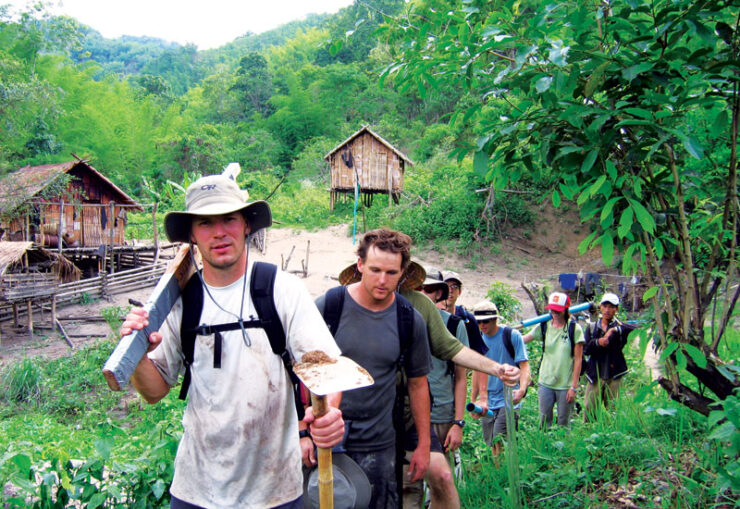Student associations seek to get people involved in volunteering
Throughout the history of film, movies have been used to make audiences laugh, cry—and also talk about heavy topics that could be easier to avoid, otherwise.
So, on Nov. 15, the International Development and Globalization student association (AÉDSA), and the Filipino Student Association of UOttawa sought to tap into the power of movies to talk about development challenges facing the world—and what students can do to help solve them.
“We wanted to engage with viewers about theories of international development,” explained Marko De Guzman, a masters student at the U of O studying public international affairs, and the VP philanthropy for the Filipino Student Association.
Living On A Dollar A Day is a documentary that was released in 2013, and follows the struggles of four American university graduates as they try to live off of a dollar a day in Guatemala for two months.
”The movie actually shows how, through (the improvement of) capabilities, financial choices, and skills, you can empower the poor,” said De Guzman.
Indeed, Living on a Dollar a Day was originally conceived as a documentary that would show audiences the realities that faced over a billion people in 2012 as they live on the value of an American dollar a day.
“We wanted to build a coalition with other organizations, so we partnered with (AÉDSA),” said De Guzman. “(Since) our club is a new club, we wanted to make sure that we’re growing … with other student organizations … we want to make sure that we’re encouraging students to volunteer.”
Following the movie, the organizers welcomed Serene Bayona, a U of O alumna, to present a panel on the importance of education in children’s development, and to look for volunteer for Room to Read—a non-profit organization that tries to help provide children in Asia and Africa with appropriate reading materials.
“I’m trying to figure a way to connect (Room to Read) with the schools in the Philippines specifically,” Bayona explained to the audience. “There’s a lot of different things that you can do with this.”
To end the hour-long movie, and subsequent presentation, the two associations opened the floor up to attendees to get their interpretation of how the film parallels with the realities that volunteers face as they get involved in grassroots initiatives.
Discussions after the movie ranged from praise for the way that the filmmakers engaged with the locals in Guatemala, to criticism for the moments in Living on a Dollar a Day when the four students broke from their research paradigms, and used outside supplies that they brought from the United States.
Overall, however, most of the discussion about the film were cast in a positive light, with a general sense of consensus that the actions of the four filmmakers was admirable—which was something that the Filipino Students’ Association of UOttawa hoped to translate into action.
“One thing that I observed at UOttawa is that there needs to be more discussion about the ways that students can get involved,” said De Guzman. “So, (I think that) it’s very important to us as a club to combine people’s views, and practices … (and) get students learning from the experience.”
To find out about future events held by the Filipino Association Student’s society, check out their Facebook page. You can find more information about Learn to Read Ottawa, and how to get involved, on their website.






